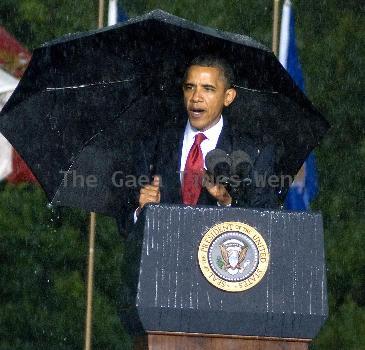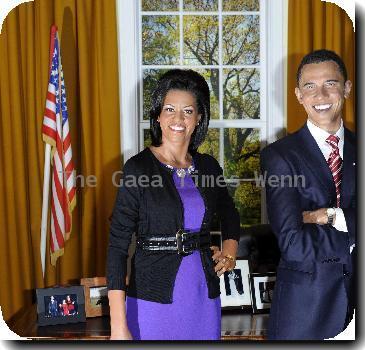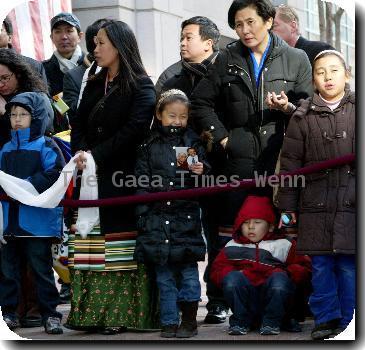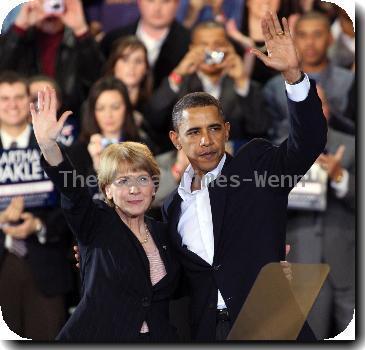With income tax cuts expiring, rates could rise for wealthy _ but what about middle class?
By Stephen Ohlemacher, APThursday, July 22, 2010
Renewal of Bush tax cuts could be only temporary
WASHINGTON — Many Americans could be hit with a big tax increase in the next two or three years despite President Barack Obama’s repeated promises to shield the middle class from higher rates.
Democrats are hedging about making Obama’s pledge stick for more than a year or two, setting up a major battle on a super-sensitive subject just before the November elections.
With the most sweeping tax cuts in a generation due to expire in January, the Democrats are divided over whether the government can afford to make any of them permanent — especially with voters increasingly upset over the fast-rising federal budget deficit.
Party lines are clear on part of the issue: Most Republicans want to permanently extend all the tax cuts enacted during George W. Bush’s presidency, nearly $3 trillion worth over the next decade. Democratic leaders want to let the cuts for the wealthiest Americans expire.
The Democrats want to extend them for everyone else, but perhaps only temporarily, out of concern for the rising red ink. That’s where Democratic lawmakers are struggling to find agreement.
“There are various options — permanent, two years, one year — and I think a decision on that should be made expeditiously,” says Rep. Sander Levin, D-Mich., chairman of the tax-writing House Ways and Means Committee. “It’s under active consideration,” he said in an interview.
Passing only a temporary extension would open majority Democrats to claims they are planning middle class tax hikes in the future — after the extension expires. Making any of the tax cuts permanent could increase complaints about a national debt that already exceeds $13 trillion.
“It’s one of the problems that needs to be taken into consideration,” said Levin.
Republican leaders have opposed much smaller spending bills that would add to the national debt — most recently a $34 billion extension of unemployment benefits, approved by Congress on Thursday. But they endorse more federal borrowing to make all the tax cuts permanent.
The tax cuts were enacted in 2001 and 2003 after Bush made them the centerpiece of his election campaign. They provided help for rich and poor alike, reducing the lowest marginal rates as well as the top ones and several in between. They provided a wide range of income tax breaks for education, families with children and married couples.
Taxes on capital gains and dividends were reduced, while the federal estate tax was gradually repealed, though only for this year.
Obama wants to make the tax cuts permanent for middle- and lower-income taxpayers, allowing the top rates to increase next year for individuals making more than $200,000 and couples making more than $250,000.
Obama’s plan would cost $2.5 trillion over the next decade, including the cost of an annual fix that spares the middle class from being hit with the Alternative Minimum — a hit of about $3,700 a year.
It would cost $2.9 trillion over the next decade to extend all the tax cuts, including AMT relief, according to estimates from the Tax Policy Center, a Washington think tank.
House Majority Leader Steny Hoyer, D-Md., first raised the possibility of a temporary extension during a speech in June about the budget deficit. In the Senate, Finance Committee Chairman Max Baucus, D-Mont., favors a permanent extension of the middle-class tax cuts, but the issue is not settled.
Finance Committee Democrats circulated a proposal Thursday that would let tax cuts for the wealthy expire next year while permanently extending the middle-class tax cuts. It would patch the AMT for two years and extend the estate tax for two years with a top rate of 45 percent. The cost: $1.55 trillion over the next decade.
Committee members met behind closed doors for more than hour Thursday to discuss the tax cuts. Afterward, Baucus said no decisions had been make.
Some rank-and-file Democrats are arguing to extend all the tax cuts, including those for high earners, for a year or two, until the economy recovers. But House Speaker Nancy Pelosi, D-Calif., said Thursday she won’t consider extending the tax cuts for the wealthy.
The debate is playing out as lawmakers move toward an election that will determine whether Democrats keep their majorities in the House and Senate.
Democratic leaders believe they have a winning message of fiscal responsibility while making the rich pay more after years of relative prosperity. GOP lawmakers say it’s a familiar debate: Democrats favor tax increases while Republicans oppose them.
“I think we’re ready to do battle on that issue,” Levin said.
Rep. Dave Camp of Michigan, the top Republican on the House Ways and Means Committee, said, “We should not allow the Democrats’ 2011 tax hikes to take effect.”
Republicans say any tax increases — even those affecting only high-income taxpayers — would hit small business owners struggling to create jobs in a down economy.
Only 3 percent of taxpayers who report business income on their individual tax returns would face a tax increase under Obama’s plan. Those taxpayers, however, account for half the business income reported on individual returns, according to the nonpartisan Joint Committee on Taxation.
“If you want a jobs bill, the fastest way to create jobs would be to extend the tax cuts,” Sen. Chuck Grassley of Iowa, the top Republican on the Senate Finance Committee, said in an interview. “One of the reasons people aren’t being hired is there’s so much uncertainty.”
Some Democrats like the idea of forcing Republicans to vote on a bill that would extend tax cuts for middle- and low-income families while leaving the tax rates to increase for high earners.
GOP lawmakers say they will try to amend the bills to extend all the tax cuts. But if they are unsuccessful, would Republicans vote against tax cuts for the middle class?
“It’s kind of a conundrum,” Grassley said. “I’m not sure I can answer your question.”
Camp said it would be difficult to block a bill extending middle class tax cuts, even if it doesn’t stop tax rates from increasing for high earners.
“I’ll probably vote for it myself,” Camp said.
Tags: Barack Obama, Debt And Bond Markets, House Elections, North America, Personal Finance, Personal Taxes, Personnel, Political Organizations, Political Parties, United States, Washington









